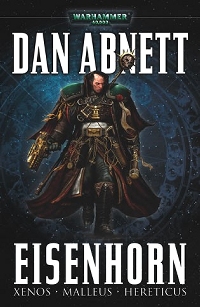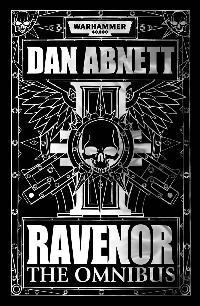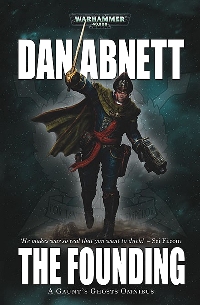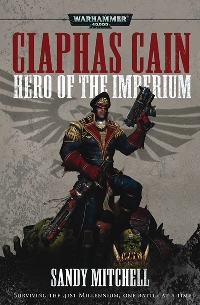
Comparing Lost and the Malazan series comes natural. Because I’m watching Lost right now as well reading the fourth book in the Malazan series. But also because they have various points of contacts in the way the narrative is being shaped.
For example the interconnections of the plot. The kind of satisfaction that comes, in this last episode of Lost, when we’re being shown who are the skeletons that Jack found in season 1. Parts that move and lock into position. Then how the mythology is filled with mysteries and yet grows exponentially from the initial premises. This kind of vertical expansion that becomes staggering and awesome when you are on top and look back.
But every time I bring this up as the type of quality I admire in Lost, I can also see that Malazan tries to follow similar patterns, on an even bigger scale, and does it more successfully. Every mystery revealed in Lost is followed by some delusion. And then the examiner in me wants to dissect these structures to understand what works in one and what doesn’t in the other.
The image I got is of a table covered with cards, arranged in rows and face down. Every card is part of the bigger scheme and the more you turn and reveal, the more you get to see the big picture. Or, if you prefer, closed doors that hide answers. But the important point is that answers need to be interconnected to form a bigger picture, so let’s continue with cards (whose position is sometime more important than what they hide). What we have in this season of Lost is that mysteries/cards are turned and revealed, but then they are discarded. One item finally revealed and checked off the TO-DO list. It means that Lost is basically made by smoke and mirrors, curtains that are progressively drawn. The result is that the actual game is “shrunk”, reduced to the essential. The more cards revealed and discarded the more we approach a much simpler “core” of the show. Lost’s path is one of simplification, where every mystery doesn’t add to the big picture, but actually “leads back” closer to another mystery at the core. It’s essentially a backtracking, following a trail and discarding all the illusions that were built along the way.
The dissatisfaction that follows the revelation of a mystery is caused by the fact that the mystery revealed was just a “curtain” for another mystery that is higher up the trail we are following. So we get to know the origin of Jacob and the Man in Black, but that revelation only leads to another mystery: the pool of light. Originally it was: why the plane crashed? This lead to an infinite expansion/development toward science. Mysterious experiments with magnetism made by Dharma, that caused an anomaly, that caused the plane to crash. But that was just a circular pattern because the plane crash wasn’t an “incident”. It was instead orchestrated so that the passengers would arrive on the island and fulfill their destiny. The island (through Jacob) called them and brought them there. They are supposed to be there for a reason. So, as you see, we are still backtracking the same big questions. We know why the plane crashed? Not really, because we know the plane crashed because someone or something decided to make it happen. Why? Because it was required so that people would arrive and then be chosen as guardians to prevent “something” to escape from the island. But what is that they have to guard? Where’s the danger? The smoke monster. Why? What’s its origin? Why this island has all sort of magical powers? The mystery must be behind the guardian (Jacob) and what he guards (smoke monster). But now we get to see Jacob and his brother’s origin. Was the mystery finally revealed? Nope, because everything originated from a pool of light. And so on we continue backtracking answers without being given even a single real one.
Lost has moved, from the beginning of 2nd season onward, through a process of expansion. A mythology that got more and more complex and intricate. Mixing science with supernatural events. A mythology that seemed extremely coherent and solidly built. Driven by purpose. Now with the 6th season it is going through a process of contraption, like an infinite regression. Cards are removed from the play. We backtrack mysteries, lead toward a core. But we’ve been given no actual answers yet. Nothing is revealed because the nature of the mystery is constantly pushed back. Hoping that the final destination doesn’t coincide with the true origin of myth: “we can’t tell you [because there’s no answer]”. (which is also connected with the theodicy)
Or, better summarized than I ever could: “It’s turtles all the way down”. It would be rather sad if Lost really came down just to that.
How Malazan manages to do it more successfully? I’ve only read to 600 pages in the 4th book, on a series of 10, but even if it ended here the series would be already immensely gratifying and successful. Something that I could never say about Lost at any point. Malazan isn’t just one long, reckless chase toward an ultimate mystery that has to sustain and motivate all that came before. This because the cards that are turned up, STAY in the game. They aren’t removed. While the mythology in Lost was mostly misdirection as a whole (leading to a simpler core), in Malazan all elements stay in play and are all connected to a bigger picture. The books are deeply interconnected and layered but none of these are “smoke and mirrors”, if not smoke and mirrors that reveal different paths and motivations.
There was for example a lot of confusion about the “warren of Shadow”. It was at times referenced as “Meanas”, and at times as “Rashan”, or even “Meanas-Rashan”. Now, in the 4th book, it is revealed that the warren of Shadow is a shattered warren. Contested. And that it is being tainted (partially taken over) by the warren of Shadow. The warren of Shadow is called, simplifying, Rashan. While Shadow is supposed to be Meanas. And that explains all the ambiguity in the previous books. Shadow is not whole and tainted with Darkness, hence the confusion and blur between names. But it doesn’t end there, because we also discover that the “Whirlwind Goddess”, previously just the goddess of some tribes in the desert who are fighting against the Malazan colonization, isn’t just a local cult. It has deep roots in the overarching mythology. The Whirlwind Goddess is itself a “redress” of a fragment of the warren of Shadows, and this revelation leads to more things making sense. Everything is linked together, misdirection isn’t just smoke and mirrors because its motives are themselves revealing. The books are generous, offering plenty of answers and surprises and intuitions constantly through the narrative. The story doesn’t run out of steam because it is intricately woven and every part has its meaning and theme.
There’s intent in the narrative of the single book, with stories coming to a resolution and some assertions of themes fully developed and “delivered”, then there’s a contribution to an overarching structure, a vaster movement that links every book together winding intricately story threads back and forth. There’s a definite progression but the motives are never constantly pushed back and unanswered. You are instead brought to cower since what is revealed always opens on a vaster scenario that couldn’t be previously fathomed. It’s like something buried in the ground. The mystery is: what is it? You try to guess. But then when you start digging you discover it’s HUGE, and far, far beyond what you could ever imagine.
Which all leads to a final element that makes Malazan superior to Lost. In the Malazan series the “knowledge” you acquire, can then be used to understand more and more. The stories rely on what you learn. This gives a satisfying idea of progress. You embrace what is going on and slowly understand. With Lost instead, two episodes from the end, our guesses are worth the same as everyone else’s. What we learned? Not much. We now know we didn’t know anything. Distracting details and derails. Clinging on the hope there’s something redeeming in the last episode that finally gives us a proper answer. The more is revealed, the less we know: we are still at the point of a mythical island containing a mythical power.
The rest was just an elaborate castle of cards woven with human drama.
“We must make sure no one ever finds it.”
“It’s beautiful.”
“Yes, it is. And that’s why they want it. Because a little bit of this very same light is inside of every men. But they always want more.”
If it’s immortality then the theme was explored much more deeply and meaningfully in Malazan. In Lost we are still wondering, two episodes from the end, why it’s wrong that men want more of that light (whatever it is).
Brought to: we can’t be happy because someone decided so. Good. Let’s go challenging whoever decided it, once for all. Let’s make a revolution. (this is also being handled in Malazan)
The smoke monster has to be freed from the dumbness of this story and its vapid motives and justifications. The world will end, but it will be for a good cause.





